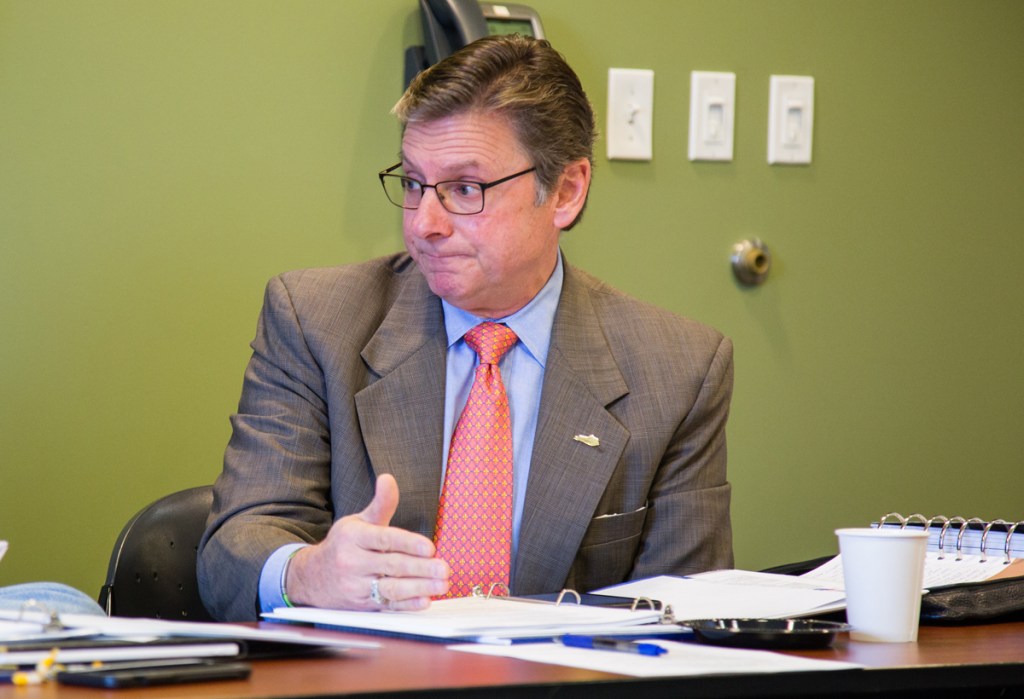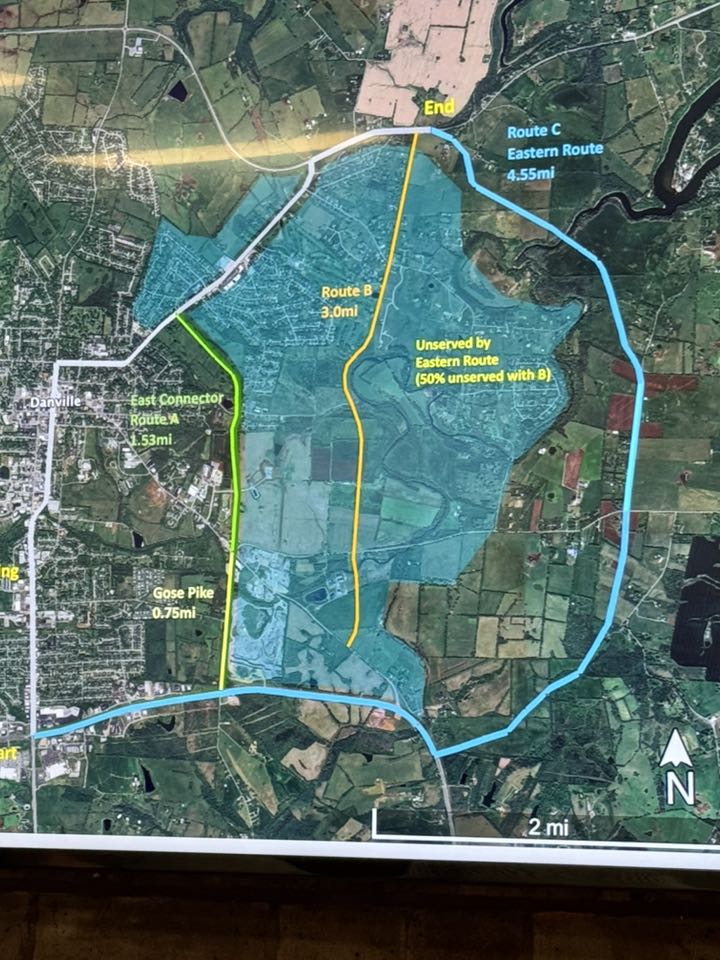Danville ponders possibilities if restaurant tax is legalized
Published 10:14 am Thursday, November 30, 2017

- Ben Kleppinger/ben.kleppinger@amnews.com Danville Mayor Mike Perros participates in Wednesday's city commission "retreat" at Centre College.
If Danville could implement a local sales tax on restaurant bills, it could provide a huge boost to funding for economic development efforts, officials at the city commission “retreat” meeting said Wednesday. But the second-class city, unlike fourth- and fifth-class cities, isn’t legally allowed to create such a tax.
Whether the state legislature might change that in 2018 was one of the biggest topics discussed during the marathon three-hour-plus gathering at Centre College.
City Manager Ron Scott said he’s been told by Bert May, a lobbyist in Frankfort for the Kentucky League of Cities, that as the legislature looks at tax reform next year, “we will have, inevitably, the league stepping up on the restaurant tax.”
Trending
“He said it will become a greater focus as we get into tax reform issues,” Scott said.
The proposal the legislature may consider involves legalizing a local-option sales tax of up to 3 percent on bills at restaurants. That 3 percent would be charged on top of the 6-percent state sales tax. Small cities in Kentucky are already allowed to have restaurant taxes — Harrodsburg in neighboring Mercer County is one that has instituted the tax. But larger cities like Danville are currently prohibited from creating the tax.
Officials who attended Wednesday’s retreat meeting were not in agreement on what the politics of legalizing the restaurant tax for bigger cities looks like.
Mayor Mike Perros said he has heard the fourth- and fifth-class cities that use the restaurant tax are actively opposed to legalizing the tax for bigger cities and “they are going to be a formidable group” in Frankfort during the general session.
“You’re going to have to have some real influence behind-the-scenes to get the legislators to vote publicly for the restaurant tax in opposition to fourth- and fifth-class cities,” Perros said.
Perros said he had been told KLC actually wasn’t going to touch the restaurant tax proposal because of the opposition from its smaller member cities. Scott and Jennifer Kirchner, executive director of the Danville-Boyle County Convention and Visitors Bureau, told Perros they had heard otherwise — that KLC would support allowing bigger cities to have restaurant taxes.

Ben Kleppinger/ben.kleppinger@amnews.com
Jennifer Kirchner, director of the Danville-Boyle County Convention and Visitors Bureau, speaks to Danville City Commission members and city staff Wednesday.
Trending
Kirchner said a majority of people involved with tourism bureaus around the state are also opposed because they see it as another of many actions from the state that takes funding away from tourism groups. Currently, 100 percent of a city’s restaurant tax goes to support the local tourism agency; under the proposal, 25 percent of the tax would go to tourism and the other 75 percent would have to be spent on “economic development,” she said. A clause that would grandfather in existing restaurant taxes so 100-percent of those funds would continue to flow to tourism agencies is not included in the most recent version of the proposal, she said.
Kirchner said there are also fears that expanding the restaurant tax would open the door for the state to allow local hotel taxes — which currently all go straight to local tourism agencies — to also be funneled toward other areas.
Kirchner said she is in a minority of tourism officials who aren’t opposed to the expansion of the restaurant tax, because if Danville chose to use it, it would only add to the Danville-Boyle County CVB’s budget, not take away from it. When she last calculated what a 3-percent restaurant tax in Danville might bring in, it was estimated at about $400,000 for the CVB and around $1.5 million for the City of Danville to spend on economic development, she said.
Kirchner said data shows that adding a local restaurant tax of 3 percent does not deter people from eating out.
“To me, this is absolutely the keystone piece for this community going forward,” Perros said. “… When you’re already seeing on the horizon a significant stretch on economic dollars, a significant stretch on our revenues, what’s the answer here folks? This is the only one I see out there that has a chance.”
Officials said there is a coalition of cities who want to see the restaurant tax expanded and discussed how they might get that group better involved in lobbying in Frankfort.
“I’m kind of frustrated with that group,” Perros said. “Why is it they haven’t already brought up this avenue of hiring a battery of lobbyists? You’re just going to have to have that. If your opposition’s got 20 people out working the halls and you’ve got three, I can pretty much tell you how that’s going to end up.”
Scott said he thinks the officials in the group are “supportive of the main priorities” of KLC and taking their lead from KLC.
“That’s putting all of our eggs in one basket,” Perros responded.
Kirchner said “I don’t think it would go over too well with voters that you were (hiring) lobbyists to lobby for increased taxes.”
“You’re going to have increased taxes” if the city wants to keep providing services and accomplishing things, Perros said. “Something’s got to happen here.”
Scott and other officials noted Danville attracts many people from outside of Boyle County to eat at its restaurants, so a substantial portion of the burden from the tax would fall on people who live elsewhere, but the revenues would benefit Danville and the CVB.
Perros reiterated his support for getting the change done in the coming year.
“This is the single largest, most important issue that we face,” he said. “And I think we’re going to get one swing at the plate.”
“This is already the second inning,” Scott said, picking up on Perros’ euphemism and noting that there were already attempts during a previous general assembly to broaden the restaurant tax. “It usually takes a couple or three legislative sessions for something of significance to occur.”
Scott agreed with Perros that the group of cities in favor of expanding the option to implement a restaurant tax “are going to have to come out of the shadows and be a more unified force” before it will happen.
Kirchner and Scott both said the current arrangement is unfairly balanced.
“That’s the part I can’t get past,” Kirchner said. “Why would you not just make it even and then let locally, the community decide. Government happens at the local level. If this community doesn’t want it, that’s fine, but we should decide that.”






